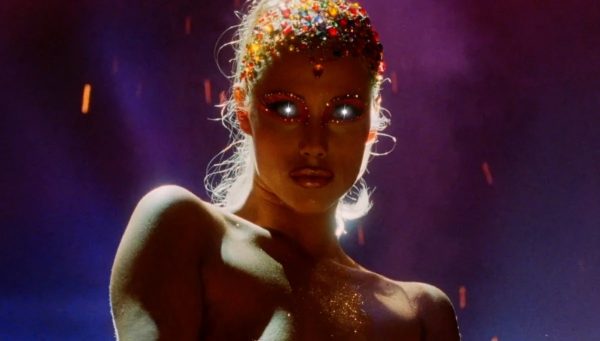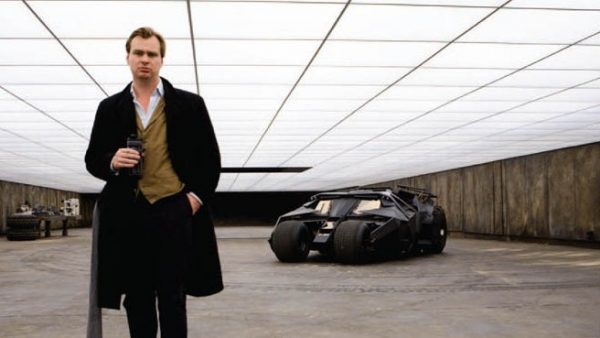EJ Moreno on the rejection of camp in film and television…

I don’t know why this moment broke me, but reading the latest story on The CW’s upcoming Powerpuff Girls series was it. There was one line from that piece (which focused on the show’s needing retooling) that stood out to me and caused me to take a step back.
“Tonally, it might’ve felt a little too campy,” said The CW chairman and CEO Mark Pedowitz about Powerpuff. “It didn’t feel as rooted in reality as it might’ve felt.”
This man just said the potential live-action series based on a kid’s cartoon on the network that hosts Riverdale and Walker Texas Ranger is too campy for him. That was it for me, that sent me into a spiral, and I had to figure out why campy is such an insult and why won’t more people embrace it. That word has ruined careers, tanked films, and even got an upcoming series scrapped after a pilot.
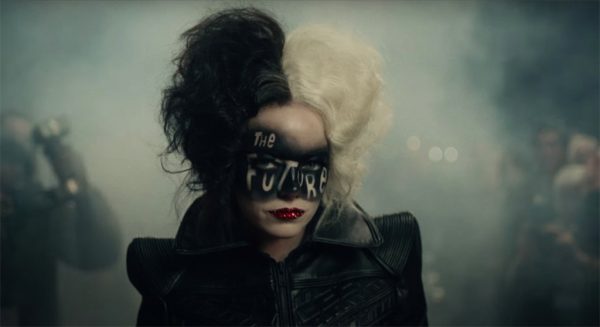
Look at the early reaction to Cruella, with many straight male critics asking, “who is this for?” It’s like camp doesn’t register in some brains, mainly when the camp is intended for a different audience than the standard “four-quadrant” demographic breakdown.
These feelings don’t just stem from The CW chairman’s feelings on a show, but simply trying to figure out the root of campy equating lousy and how we can fix this.
What was your first campy film? The first one I remember growing up was Batman & Robin. Sure I liked movies that are undoubtedly campy before that, especially the cult classic Addams Family Values. But Batman & Robin was the first one that spoke to me as a person who would grow and appreciate camp as my comfort zone. It was mainly due to my age and lack of cinematic awareness, but I adored this movie.
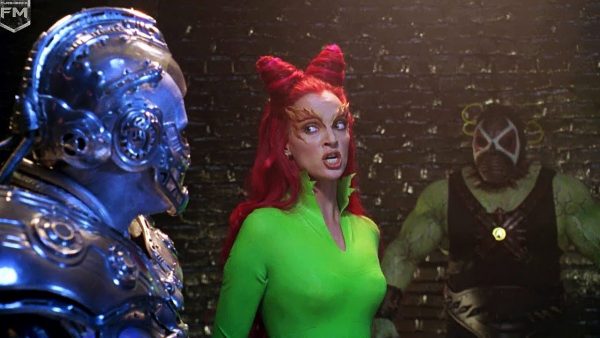
I watched Uma Thurman do her best Mae West and adored every Arnold Schwarzenegger ice pun; this was just everything I wanted. As I got older, I’d find out that the late Joel Schumacher would be an expert in camp, but I just knew whatever this was, this was for me. Go back and watch The Lost Boys if you want an example of Schumacher’s great camp.
So years would pass, and I’d find out people hated this movie; hell, I found out that Batman & Robin killed the DC franchise for years until the severe mega Nolan era started in 2005. One word (along with some admittedly bad moments) killed a film series.
A Batman movie made with a different type of appeal was dubbed far too cartoony, even for the insane over-the-top time that was the 1990s. This project was too much for too many people, but there was a small group who enjoyed it.
This group of people who liked Batman & Robin tends to appreciate films like Sleepaway Camp, Showgirls, Heathers, and The Rocky Horror Picture Show. There’s this unspoken connection between folks that enjoy campy films. They aren’t all from the same walks of life, but they all bond over a love of seemingly “bad” movies or movies dubbed too over-the-top for their own good.
And what puzzles me is when folks accept camp in certain regards but will ignore it when it comes to more queer/light-hearted camp. These days, the biggest movies are super-powered humans fighting over magical gems and personal issues. A male-dominated franchise has cars going into space and makes a billion dollars. Don’t get me started on 80s action movies and how they seep in the “bro camp” aesthetic.
The camp erasure in most franchises has happened for decades, with the 00’s being the final nail in the coffin for the films. I mentioned Christopher Nolan earlier, and I do feel like he deals with the brunt of the flack. Nolan, alongside a few other filmmakers, ushered in an era that we are slowly leaving behind. In the 2000s and up until the last few years, all of the film industry was direly serious.
If you even attempted something with too campy of a tone between 2003 and 2016, it would be pushed back. Nerds wanted their comic books done in a more grounded way, horror films went straight for brutality, and even action movies got dour post-9/11. We lived in a time afraid of camp, but I feel we are slowly moving away from it.
The problem now, though, no one wants to admit when something is campy.
There’s still significant hesitation regarding the term campy; many afraid to embrace it or allow that label onto their art. I spoke with filmmaker Rachel Talalay last year about her latest Netflix movie A Babysitter’s Guide To Monster Hunting. When using the term campy in a positive way to describe her work, she pushed back, saying, “I would prefer not to call it campy, which can have a negative connotation.”
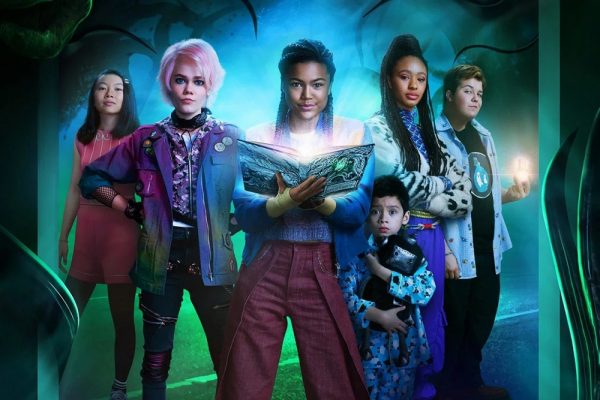
I was shocked at that as that was my first time positively using that word and being corrected. It later happened again in a very different context. I went on to call Zack Snyder’s Justice League a campy yet mature good time. And this was coming from a place of admiration for the film. But viewers, on both sides, were turned off by that. Snyder fans took it as an insult, and people who disagree thought I was looney (For the record, I think Zack Snyder is an incredibly campy filmmaker, and people who think his work is too grim are seriously misunderstanding it).
If you called something like Guardians of the Galaxy camp, most people would stare at you puzzled. Maybe my admiration for the word is strong, but some people find that word to be too insulting. We live in an era where Fast and the Furious, Avengers and Star Wars are mainstream culture, but no one wants to admit their cheesy, fun roots.
I want the fear to use campy removed from the minds of folks. I want people to embrace that even their most beloved blockbuster is a bit of a camp romp at the heart of it. Embrace the strange and unusual, not just for “popular” cult classics like Rocky Horror.

Accept that something can be over-the-top, and if it’s not for you, know that it’s meant for someone else. One man’s trash is truly another man’s treasure.
When we stop equating the word “campy” with the word bad, we’ll be better as a film viewing society…
What are your thoughts? Let us know on our social channels @FlickeringMyth…
EJ Moreno
